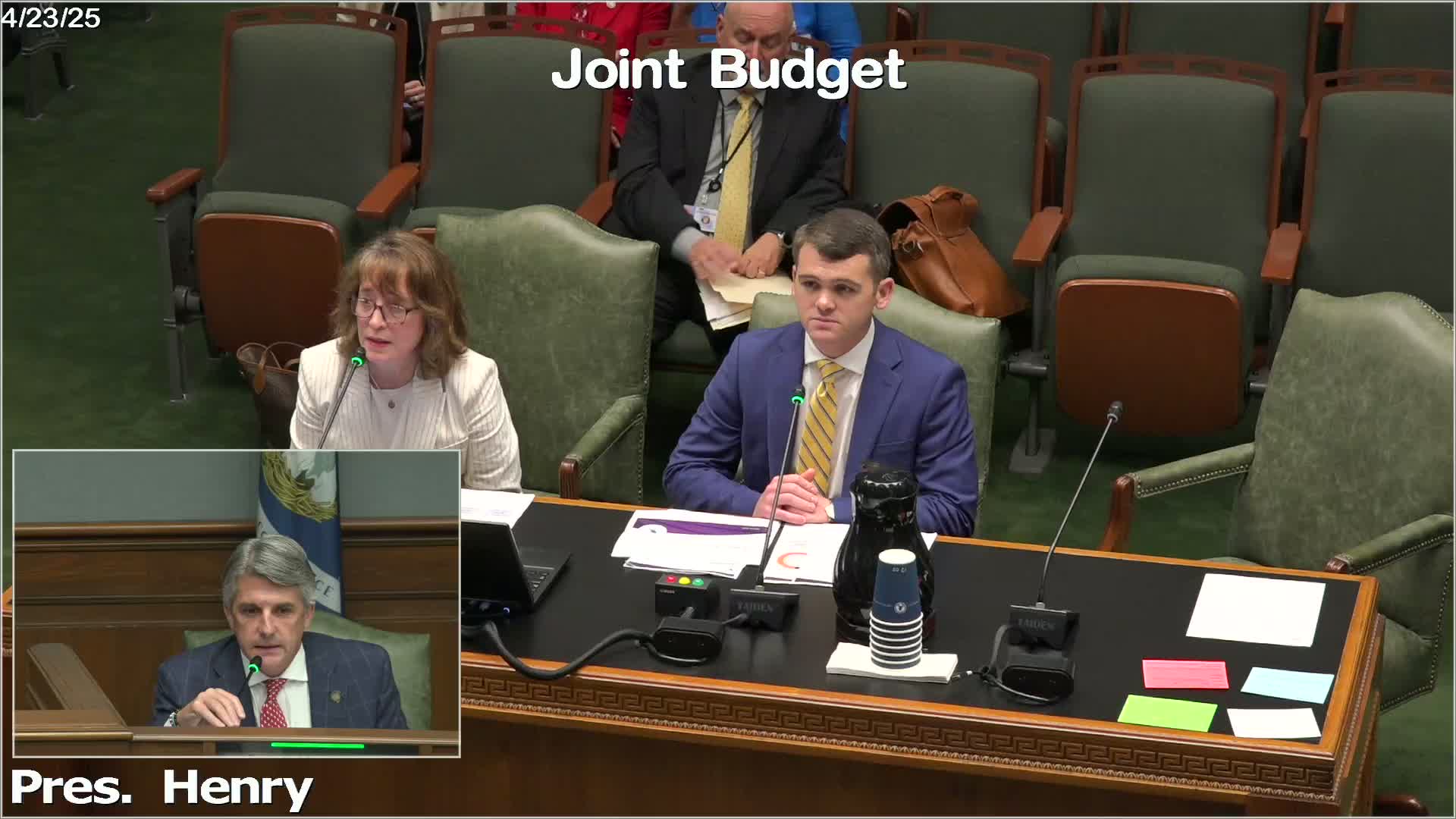State education officials seek one-year Odyssey extension to launch new ESA 'Gator' program as lawmakers press funding and seat questions
Get AI-powered insights, summaries, and transcripts
Subscribe
Summary
The Louisiana Department of Education asked the committee on April 23 to approve a one‑year extension of its contract with Odyssey so the state can launch the new education savings account (ESA) "Gator" marketplace; lawmakers pressed officials for parish‑level seat counts, disability accommodations and fiscal projections.
Department of Education officials told the committee the state needs a one‑year contract extension with Odyssey to operate the newly authorized education savings account (ESA) program — commonly referred to in discussion as the “Gator” program — and to deliver the marketplace of services, account management and vendor oversight required by the law.
Kaye Bromley, representing the Department of Education (LDOE), said the department has worked with Odyssey to accept applications and to verify eligibility. LDOE staff said roughly 34,000–35,000 families had applied at the time of the meeting and that approximately 45,000 seats had been reported as available by nonpublic schools that completed the department’s approval process. The governor’s executive budget contains funding for roughly 11,000 awards; prior voucher-program participants number roughly 5,000–6,000 and are treated as a priority within the placement rules LDOE has adopted.
Lawmakers repeatedly raised fiscal concerns: several members asked how many applicants are already enrolled in public schools (information the department said it collects and will provide) and how many seats by parish and grade are actually available for students with the academic and grade‑level matches they would need. Representative and Senator questioning focused on the program’s growth risks if awards are extended beyond pupils who would otherwise have been public‑school students: the state’s contribution to a transferred pupil’s MFP share changes depending on whether the child previously generated state/local MFP funding for a public district.
Alan Boxberger of the Legislative Fiscal Office explained the MFP arithmetic in general terms: the statewide MFP average per student is used as the starting point, and the state’s share of that average (roughly 57–58% of the total on an average statewide basis) factors into how the state’s obligations change as pupils move from public to private settings. Boxberger said individual cases can differ; the Legislative Auditor’s office noted the overall transfers reached record highs in FY2023 and are projected to settle closer to pre‑COVID levels in FY2025–26.
Committee members also pressed for more detail about students with disabilities: how many approved private schools reported capacity to serve students with disabilities and how many seats in the vendor roster are likely to be appropriate for students with exceptionalities. LDOE said the department and Odyssey will confirm case‑by‑case placements and that the marketplace structure permits families to use award dollars for services in addition to tuition (for example, therapy, tutoring and materials). Caleb Moore and other LDOE staff described a verification and vendor‑approval step inside the Odyssey platform; the department said LDOE retains oversight and final authority over eligibility and approvals.
LDOE officials told the committee the program cannot launch on schedule in August without the Odyssey contract extension and the committee heard that the vendor‑management fee under the full executive budget would be roughly $144 per student for account management, with broader program costs tied to the number of awarded students. Department staff emphasized the program is subject to appropriation and that applying to the ESA does not guarantee a placement or award.
The transcript records extensive questions and requests for parish‑by‑parish and grade‑by‑grade seat counts, clearer projections of net state fiscal impact per placed student and explicit breakdowns of how awards interact with the state and local portions of the MFP. The committee did not record a final vote on the Odyssey amendment during this meeting segment; several members asked LDOE to provide additional data before the committee makes appropriation decisions.
